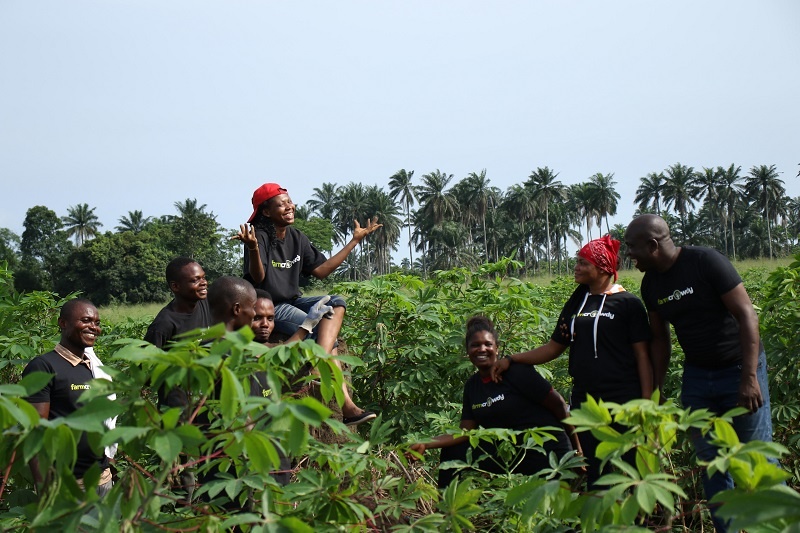Africa is home to 25 per cent of the world’s farmland, but just 10 per cent of crops produced globally are generated on the continent. A vicious cycle exists here, but it is one being addressed by a host of African tech startups, many of whom are now eyeing wider opportunities.
What is the vicious cycle that affects African agriculture? According to Opportunity International, most African farmers are operating at just 40 per cent of their potential capacity, with this remaining the case because smallholder farmers lack access to financial services. They lack access to these services because of low crop yields, which prevent them from providing collateral to a financial institution so they can receive a loan.
This is a damaging scenario that has kept African agriculture – which accounts for about 65 per cent of the continent’s workforce and could, if harnessed correctly, be the “breadbasket” of the world – in the doldrums. Yet tech startups across the continent are working to unlock its potential.
Crowd-investing of farmers in Africa was pioneered by Nigeria’s Farmcrowdy, but the model has since been used and adapted by a host more startups – Thrive Agric, Seekewa, Complete Farmer, BaySeddo, YouFarm and Livestock Wealth, to name just a few. These platforms, which all in essence allow users to fund an Africa farmers’ purchase of inputs and make returns at the end of a farm cycle, are having quite an impact.
Farmcrowdy has generated more than US$14 million for thousands of farmers since its launch. Younger startups are also having an impact. Thrive Agric, for example, has worked with 22,000 farmers, and produced over 127,000 tonnes of grain. Complete Farmer has, in just two years, worked with 1,500 farmers and exported 4,700 tonnes of food raw materials. Seekewa has funded dozens of projects. BaySeddo has seen more than US$400,000 invested through its platform. The list goes on.
The impact of these platforms is turning these startups into successful businesses in their own right. They are increasingly popular with investors, combining as they do the impactful and in-vogue sectors of fintech and agri-tech. There is also ample room for expansion.
Farmcrowdy has diversified, moving into the more general crowdfunding space with Crowdyvest. According to chief executive officer (CEO) Onyeka Akumah, crowdfunding can impact positively on other sectors, such as transportation. Yet he says there is also much more that can be done with the agriculture space alone.
“The industry is evolving rapidly and there is so much to be achieved in the agriculture space,” he said.
That is where Complete Farmer is focusing its own expansion efforts.
“Our platform doubles as a commodity-sourcing platform, where global commodity buyers in need of quality agricultural produce can source for them directly from these farms,” said CEO Desmond Koney.
“The agricultural produce is grown by our team of skilled growers and farm managers with the use of modern technologies, research-proven practices and data-driven cultivation protocols. Our platform gives our customers visibility into the process, from cultivation to delivery.”
Yet the job is not yet done when it comes to expanding access to finance for Africa’s smallholder farmers. Koney says demand for smallholder agriculture finance in Sub-Saharan Africa is estimated to be as high as US$11 billion, but less than three per cent of this demand is currently met.
“The nature and magnitude of the challenges we face in African agriculture today – challenges associated with food security, agricultural innovation, technology, and agricultural productivity are a testament to how big the agricultural funding gap is in Africa,” he said.
“This lack of access to funding by smallholder farmers and other stakeholders across the value chain is one of the major factors making us largely dependent on other nations for food we can grow and process in our own backyards, and this is constraining agriculture’s contribution to economic growth.”
However, according to Koney, the good news is that innovative agribusinesses, financial institutions and government schemes are addressing these issues, meaning progress is being made. The prevalence of crowd-farming platforms, funding farmers and finding new ways of assisting the whole value chain, can only be a positive thing in this regard.


